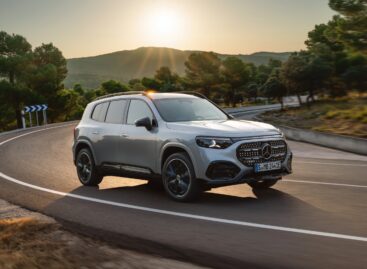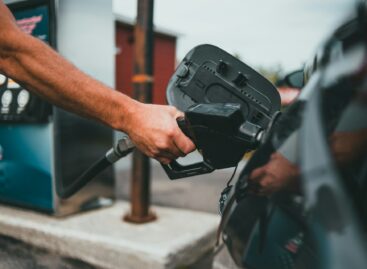Magazine: On the way to the new mobility
In the last 12 months individual mobility became much more valued.

Gergely Lakatos
business development
manager
EuroFleet
During the pandemic EuroFleet developed the EuroFleet-EcoFlotta service. Gergely Lakatos told: since 6-10 months pass from buying a car and actually getting it, EuroFleet’s cars in stock can be of great help, as users receive them in just 2-3 weeks. EuroFleet also thought of customers who didn’t want to use public transport: eBringaFlotta consists of pedelec electric bikes that are available in an operative leasing scheme.
Growing e-fleet

Gyula Szabó
commercial director
Mercarius Flottakezelő
In spite of the pandemic, 2020 was a successful year for Mercarius Flottakezelő Kft., as the company managed to keep all of its workers – the number of employees even increased by 20 percent! The size of the fleet reached 9,000 vehicles by the end of the year and there are much more hybrid and electric vehicles in it now.
Commercial director Gyula Szabó informed that from the smallest cars to the biggest trucks, all types of electric vehicles are available. Most brands can be found in the market, and various state funding schemes and the expansion of the charging point network contribute to the category’s growth in 2021.
Going greener on four wheels

Gabriella Mogyorósi-Bartók
PR-manager
Mercedes-Benz Hungária
The pandemic didn’t deter people from buying cars: in 2020 Mercedes-Benz Hungária Kft. sold 4,501 cars, repeating its record performance of 2019. Electric and plug-in hybrid vehicles are increasingly popular, as they made up for 20 percent of all newly registered vehicles.
PR manager Gabriella Mogyorósi-Bartók told our magazine that sustainability is now important in fleet management too. Very often the CO2 emission level of cars is a key factor for partners in deciding which models to choose. This green trend was further strengthened by the tax benefits offered to the users of e-cars.
One card – a thousand solutions

István Mosolygó
head of card
managment
MOL
MOL Group’s fuel cards offer the perfect choice in every situation, in the case of both Hungarian and international driving destinations.
According to MOL’s head of card management István Mosolygó, the MOL Group Gold card can be used to buy motor fuel at 6,000 filling stations of 16 countries. Fuel cards can be personalised, buying limits can be set, transactions can be monitored and the management of e-accounts are just some of the benefits offered by these cards. They can also be used to pay road tolls or for motorway vignettes. In 2021 MOL will launch its OBU solution for road toll payment in 8 Western European countries, while the company’s domestic road toll (HU-GO) payment service will be up and running from the autumn of 2021.
Efficient, eco-friendly and offers many advantages

Lajos Veér
B2B commercial
director
Shell
Shell’s fuel card programme provides various fleet types with a wide range of products and services. Services are tailored to the individual needs of businesses – from car to truck fleets, in both domestic and international transportation.
Lajos Veér, Shell’s B2B commercial director told our magazine: Shell renewed its assistance service for passenger vehicles – users can now get replacement cars abroad, while partners with a truck fleet can benefit from a large number of new services. By using the EETS unit road tolls can be paid in 12 countries, while in Hungary the HU-GO e-road toll can be settled in post-pay mode. This May Shell launched its Carbon Neutral Programme in Hungary: corporate partners can reduce their CO2 emission by paying HUF 4.5+VAT per litre on motor fuel purchased at Shell filling stations if they join the programme. //
Related news
140 years of innovation: Mercedes-Benz Hungária strengthens in Hungary with product offensive and “Mercedes-Benz City” program
🎧 Hallgasd a cikket: Lejátszás Szünet Folytatás Leállítás Nyelv: Auto…
Read more >Mol: Hungary’s fuel supply is secured despite the extreme weather
🎧 Hallgasd a cikket: Lejátszás Szünet Folytatás Leállítás Nyelv: Auto…
Read more >Coffee and hot dogs at their peak: MOL closes a record year
🎧 Hallgasd a cikket: Lejátszás Szünet Folytatás Leállítás Nyelv: Auto…
Read more >Related news
(HU) Átadták a SIRHA Budapest 2026 Innovációs Termékverseny díjait
🎧 Hallgasd a cikket: Lejátszás Szünet Folytatás Leállítás Nyelv: Auto…
Read more >How does the forint exchange rate affect consumer prices?
🎧 Hallgasd a cikket: Lejátszás Szünet Folytatás Leállítás Nyelv: Auto…
Read more >









